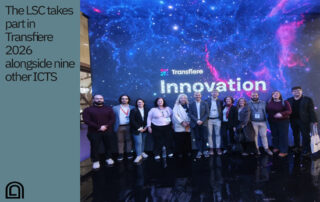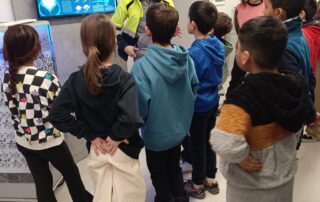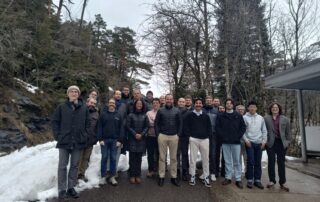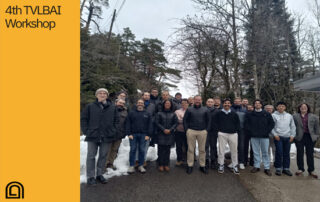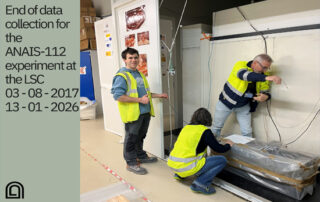IV TVLBAI Workshop
From February 2 to 4, the LSC hosted the IV Workshop on Very Long Baseline Atomic Interferometry (TVLBAI).
4th TVLBAI Workshop
From February 2 to 4, the 4th Terrestrial Very-Large-Baseline Atom Interferometry (TVLBAI) Workshop was held at the LSC facilities. This workshop brought together international experts from several scientific and technological fields of relevance to TVLBAI, with the main objective of progressing towards the realisation of kilometre-scale experiments planned to become operational in the mid-2030s.
End of data collection for the ANAIS-112 experiment
ANAIS-112 has accumulated nearly 8 and a half years of data with 9 NaI(Tl) modules (112.5 kg), achieving a high level of experimental stability. The analysis of the first 6 years shows no annual modulation, leaving little room to interpret the DAMA/LIBRA result in terms of dark matter. On [...]
Big Science Industry Forum Spain 2025
The LSC, together with other ICTS, participated in the Big Science Industry Forum Spain 2025 (BSIFS2025) organised by the CDTI, the INDUCIENCIA Technology Platform and the Spanish Science Industry Association INEUSTAR. This is the first Science Industry forum to be held in Spain. The aim of this forum was [...]


